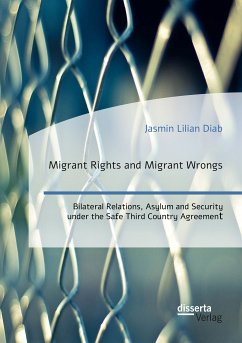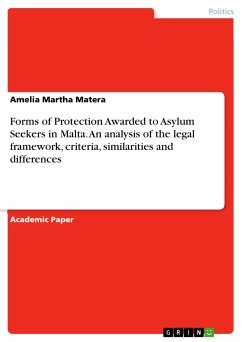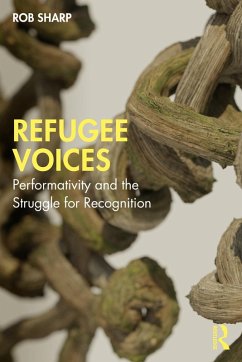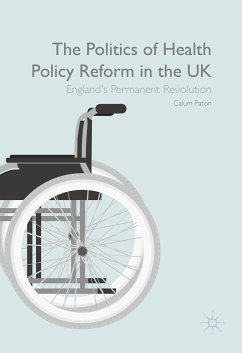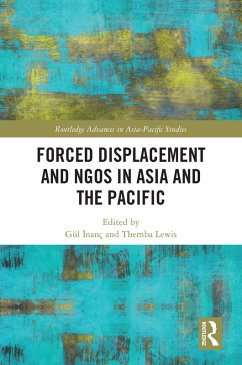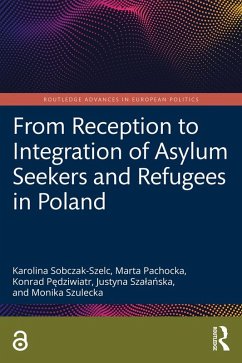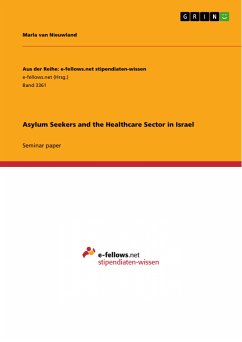
Asylum Seekers and the Healthcare Sector in Israel (eBook, PDF)
Versandkostenfrei!
Sofort per Download lieferbar
Statt: 17,95 €**
13,99 €
inkl. MwSt. und vom Verlag festgesetzt.
**Preis der gedruckten Ausgabe (Broschiertes Buch)
Alle Infos zum eBook verschenkenWeitere Ausgaben:

PAYBACK Punkte
0 °P sammeln!
Seminar paper from the year 2019 in the subject Politics - Topic: International relations, grade: 1,0, Tel Aviv University, language: English, abstract: This paper aims to address the research question: How satisfied are asylum seekers with healthcare services in Israel? The question is specifically framed in a way that encourages asylum seekers' advocacy and participation in the discussion, because previous research has too often only talked about asylum seekers' needs and not with the asylum seekers themselves. Two interviews with an Eritrean and a Sudanese asylum seeker have shed a light on...
Seminar paper from the year 2019 in the subject Politics - Topic: International relations, grade: 1,0, Tel Aviv University, language: English, abstract: This paper aims to address the research question: How satisfied are asylum seekers with healthcare services in Israel? The question is specifically framed in a way that encourages asylum seekers' advocacy and participation in the discussion, because previous research has too often only talked about asylum seekers' needs and not with the asylum seekers themselves. Two interviews with an Eritrean and a Sudanese asylum seeker have shed a light on the general situation and satisfaction of asylum seekers with healthcare services in Israel. Resulting from the findings of the interviews, the study also proposes governmental action that can and should be done to address and improve the satisfaction of asylum seekers with the healthcare sector in Israel. The remainder of this paper will proceed as follows: in the next chapter, the relevant terms will be defined, followed by a literature review of existing research. Then the research design will be discussed as well as the content of the interviews and the relevant findings. After a short elaboration of the limitations, the study will be concluded. The presence of African asylum seekers is a relatively new phenomenon in Israel. Only since 2005 people have begun to flee to the Jewish country. The majority comes from repressive regimes in Eritrea and Sudan. And it was only until 2012 that they could cross the border from Egypt to Israel, before a wall was erected that immediately stopped the migration flow. It has been almost 15 years since the arrival of the first wave of migrants, but the life of African asylum seekers still continues to be harsh in Israel. To this day, only 14 people have received official refugee status, while there are currently 35,000 asylum seekers either still waiting for their asylum procedure to be finished or they have been denied the refugee status and are only temporarily allowed to stay in the country. The legal status of asylum seekers in Israel comes essentially without any basic liberties and people face the threat of deportation on a daily basis. Asylum seekers lack access to healthcare services and usually do not have an official work permit, which forces migrants to work under illegal and exploitative conditions in order to earn their income. Furthermore, many asylum seekers have experienced torture and exploitation on their way to a safe country.
Dieser Download kann aus rechtlichen Gründen nur mit Rechnungsadresse in A, B, BG, CY, CZ, D, DK, EW, E, FIN, F, GR, HR, H, IRL, I, LT, L, LR, M, NL, PL, P, R, S, SLO, SK ausgeliefert werden.





